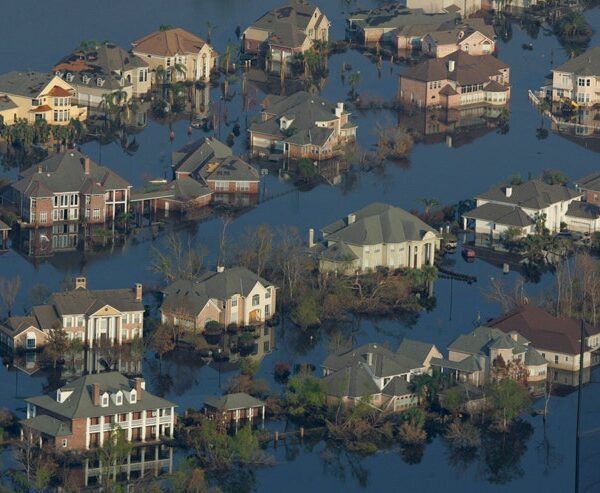
I never thought I’d attend Burning Man or Davos, let alone both within the span of a year. And I certainly didn’t expect to walk away from each with the same insight about leadership in this era of disruption.
To be clear, neither of these environments felt like my scene. As someone who is usually asleep by 10 p.m, camping in the Black Rock Desert for a week last August was atypical.
About six months later, as I prepped to mingle with CEOs and world leaders at Davos this year, my week at Burning Man was a distant memory. I figured, as most people might, that the two worlds have little in common.
The playa and the promenade
And for good reason. Burning Man required me to travel 120 miles north of Reno, Nevada, to the sun-scorched lakebed of the Black Rock Desert known as the “playa.” Davos, meanwhile, is better known as a Swiss ski resort located in the highest city in Europe. How’s that for symbolism?
Beyond geography, the approach to identity is starkly different. Many Burning Man attendees go by “playa names” rather than their real names. Meanwhile, Davos functions like a credentialed Disneyland. Your name tag and badge color dictate how you navigate between spaces and checkpoints, signaling which doors — literally and figuratively — open for you.
Still, as I strolled the promenade at Davos, I found myself thinking back to my time on the playa — and starting to draw uncanny parallels.
For one, both events are ephemeral ecosystems. Temporary cities are constructed for a week and deconstructed immediately thereafter. That impermanence creates its own operating logic and culture, even down to the phrases you hear from other attendees: “Is this your first Davos?” or “Is this your first Burn?”
And because each environment is so isolated and immersive, planning everything ahead of time is crucial — from transport and housing to gear selection and daily essentials.
But here’s the paradox — while both environments demand intense preparation, it was my ability to embrace and navigate unexpected moments that proved the most transformative.
It was the common polarity between planning meticulously and being prepared to pivot that made me think: This is what many CEOs are missing as they navigate a BANI (Brittle, Anxious, Nonlinear and Incomprehensible) world.
Disruption moves faster and cuts deeper
Having spent my career advising leaders through the digital age, I’m well aware that change is a constant. But disruption today is moving faster and cutting deeper. The forces shaping our world — from geopolitical instability to economic uncertainty to the integration of AI — create distinct patterns of change that are harder to decode.
The speed, depth and interconnectedness of today’s challenges are why the traditional acronym to describe a changing world, VUCA (Volatility, Uncertainty, Complexity and Ambiguity), is being replaced by BANI. It’s a new language for a new reality.
In this landscape, leaders can’t rely on the playbooks that worked before — they must adapt.
Adaptive leadership asks executives to reject the idea of the CEO as an all-knowing strategist. Despite their best efforts, a leader who attempts to steer an organization according to a fixed plan or vision, with no room for iteration, will struggle to navigate unfamiliar, multifaceted challenges.
Being adaptive means embracing complexity when confronting novel problems. Rather than quickly offering a solution, a CEO should listen and absorb the full scope of the situation. It demands an openness to experiment with new approaches, knowing that some may not succeed.
More crucially, adaptive leaders prioritize diversity of thought and opinion, seeking out viewpoints beyond their immediate circle, or even the organization. Ultimately, it’s an openness to unexpected perspectives that equips leaders to evolve their thinking and respond with agility.
I’m not here to say leaders shouldn’t prepare. I’m an avid planner and can attest to preparation being a game changer for Davos and Playa Living. But if I’d stuck rigidly to how I thought each event should go, I would have sacrificed the most transformative aspects of the experience.
Convergence and connection
During my time at Davos, it was a spontaneous interaction with a tech founder that led to a long walk along the promenade, sparking a life-long connection built on a unique convergence of shared values, dreams and critical perspectives.
At Burning Man, serendipity arrived more dramatically. As I set out one afternoon to explore some of the large-scale art installations, an unexpected dust storm rolled in. I found myself ducking into a canopy tent with a group of uniquely clad strangers who welcomed me in without hesitation and settled in for an afternoon of conversation.
It’s easy to fall back on what’s worked before. I tried approaching my time in intimidating, unknown environments with the same mindset I bring to other aspects of my life: plan ahead, anticipate needs and minimize surprises. I figured if I packed well enough and covered all my bases, I could control enough variables to manage the experience.
CEOs often do the same, relying on familiar methods and metrics even when the ground beneath them is shifting. They may assume that the discipline that worked in a VUCA world is enough to navigate today’s challenges. But in a time defined by non-linear crises, a leader who defaults to habit and rigidity will only hold their organization back.
Leading in a BANI world means unlearning the instinct to move quickly with familiar solutions — and instead, creating the space to listen and explore new possibilities. When you can approach the unknown with pure curiosity, the instinct to “fix” gives way to an openness to learn and experiment.
Because when faced with unfamiliar terrain, often the best thing you can do is lean in, remain open and let the new variables inform your next move.
The opinions expressed in Fortune.com commentary pieces are solely the views of their authors and do not necessarily reflect the opinions and beliefs of Fortune.















